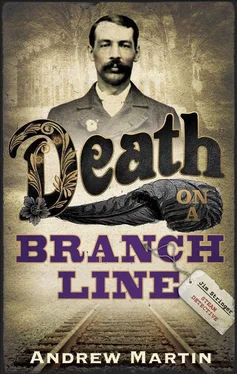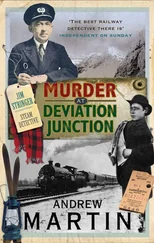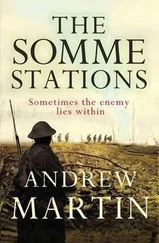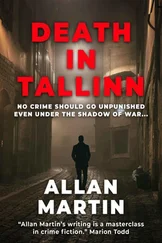Andrew Martin - Death on a Branch line
Здесь есть возможность читать онлайн «Andrew Martin - Death on a Branch line» весь текст электронной книги совершенно бесплатно (целиком полную версию без сокращений). В некоторых случаях можно слушать аудио, скачать через торрент в формате fb2 и присутствует краткое содержание. Жанр: Классический детектив, на английском языке. Описание произведения, (предисловие) а так же отзывы посетителей доступны на портале библиотеки ЛибКат.
- Название:Death on a Branch line
- Автор:
- Жанр:
- Год:неизвестен
- ISBN:нет данных
- Рейтинг книги:5 / 5. Голосов: 1
-
Избранное:Добавить в избранное
- Отзывы:
-
Ваша оценка:
- 100
- 1
- 2
- 3
- 4
- 5
Death on a Branch line: краткое содержание, описание и аннотация
Предлагаем к чтению аннотацию, описание, краткое содержание или предисловие (зависит от того, что написал сам автор книги «Death on a Branch line»). Если вы не нашли необходимую информацию о книге — напишите в комментариях, мы постараемся отыскать её.
Death on a Branch line — читать онлайн бесплатно полную книгу (весь текст) целиком
Ниже представлен текст книги, разбитый по страницам. Система сохранения места последней прочитанной страницы, позволяет с удобством читать онлайн бесплатно книгу «Death on a Branch line», без необходимости каждый раз заново искать на чём Вы остановились. Поставьте закладку, и сможете в любой момент перейти на страницу, на которой закончили чтение.
Интервал:
Закладка:
He kept silence.
Why would a man about to die have any interest in keeping a secret?
‘You make… timetables,’ said the wife, from over near the sofa.
‘My wife will step outside now,’ I said.
Lydia — giving me not so much as a glance — was leaning over the sofa, fanning her brown face with her straw boater, which I knew was meant as a deliberate provocation.
‘Would you please move away from there?’ Lambert rather coolly requested.
Lydia stood back, saying, ‘You needn’t worry. I do not understand railway timetables.’
A beat of silence.
‘Actually you will find that many perfectly intelligent people do not,’ said the wife. ‘They are very badly designed. Your brother was not married, I believe,’ she ran on, ‘but is there a fiancee perhaps, or some special woman who will be thinking of him this week-end?’
I looked white at her. Here was a man who did not expect to outlive the day, and she was making tittle-tattle.
‘My wife will leave the room now,’ I repeated.
Lydia eyed me for a full five seconds before turning on her heel, and walking out, which left a strange silence between me and Lambert, during which he smoked out his cigarette.
‘Well, congratulations,’ he said, ‘you worked your will in the end.’
So saying, he turned and pitched the cigarette stub into the fireplace, where it joined dozens — if not hundreds — of its fellows.
‘Is it difficult to be married?’ he asked, turning back to face me.
‘She’s rather strong-minded,’ I replied.
Lambert looked as though he might have said a hundred things in answer to that, but settled on none. He glanced at his watch.
‘Will you join me in a friendly glass?’ he enquired. ‘Just before the return of friend Usher?’
He caught up a tumbler from the mantel-piece, and poured into it from a whisky bottle that stood by the sofa. But this glass was evidently his own, so another was needed, and as Lambert hunted about for it I let my eye run over his papers.
There seemed an eastern bias to it all. Two timetables of the Great Eastern; a town plan of the port of Harwich; sea charts for the Channel and the North Sea; a book on the railways of East Anglia. The written documents gave little away, but were just dense masses of handwriting. I made out a few phrases — ‘Principal entraining stations’, ‘provision of hospital trains’ — and one sentence I read in its entirety. It stood out almost luminous: ‘There must be kept, throughout the emergency, open lines for out-going, so that trains can be kept running, as it were in a circle.’
And that was when the picture composed.
As Lambert handed me the whisky, I was in a flat spin of excitement, and I drank it in a draught to steady myself. John Lambert did the same — and it wasn’t his first of the day, either. It was agony to understand something of the matter at hand, and yet to be checkmated by his silence.
He was now peering through the gap in the curtains at the window that overlooked the fields. He turned to me, and said, ‘Drink up, Usher’s coming. You can go out by the way you came in.’
‘Now hold on,’ I said. ‘We can face him down together.’
Lambert smiled and shook his head.
‘A small chance remains that he and I might reach an accommodation, but there’ll be no chance of it if we have company.’
And there was somehow nothing else for it. I would leave, and I would return directly with the Chief. If I was too late, then it was too bad.
Lambert walked towards the far door. He unbolted it, stepped into the back garden and, as I quit the room by the front door, I heard him say ‘Hello again’ in a fascinating, dead tone. There was some smooth answering murmur from Usher, and then Lambert said, ‘Look — let’s talk out here in the garden. It’s pleasant here, don’t you think?’
I stepped through the front door, and there stood the wife, kicking her heels.
‘This way,’ I said, indicating the most direct route towards the woods, and she stood still for a moment, just to show that she would not take any more orders from me.
I waited for her at the railing that bordered the woods. I had managed the angle so that we could not be seen from the rear of the gardener’s cottage, and the wife had followed my footsteps very precisely along the scorched grass, although keeping at twenty yards’ distance.
‘And are you any the wiser?’ she said, looking at the sporting cap, which I had fixed back on my head.
The railing stood between us.
‘Yes,’ I said. ‘Come out of the grounds.’
‘You left in a tearing hurry,’ she said.
‘Usher came up to the cottage by the back way. The two of them are talking in the garden now.’
‘I think you should have stood your ground. If you’re dead set on filling up our week-end with this business you should go about it properly.’
I made no reply.
‘You’re scared of that man Usher, why don’t you admit it?’ she said, climbing over the railing.
I put out my hand to help her.
‘Don’t you dare,’ she said, and struck out for the main woodland track.
Now it was my turn to follow her at a distance.
‘Do you want to know what all those papers of Lambert’s are about?’ I called after her.
No answer. She walked on with swishing skirts.
‘It’s the mobilisation of the British Army,’ I said.
The wife said nothing to that, but I knew by the change that had overcome her walk that she was impressed.
Chapter Nineteen
We tramped on through the woods.
We’d missed the best route back to the village, but I knew the general direction. Sometimes I walked ahead, sometimes the wife. Sometimes we walked parallel on separate narrow tracks through the trees. Every so often the wife would shoot a look of fury at me, and at my green sporting cap in particular.
As we walked on, I thought of the timetable clerks at the Company offices in York, who worked amid heaps of graphs and diagrams and maps and were considered the brightest sparks of the place, while the men in charge of them were the leading intellects of all. John Lambert was evidently one of the men in charge of the men in charge. He would have the brains to overturn a conviction for murder. If he spoke out against a hanging, people would listen. But who did he plan to speak out to?
Was Usher the man? Or was he out to silence Lambert?
I’d read in the railway papers of the mobilisation schemes, but the subject was always very cagily approached: ‘It is likely that plans are in hand…’; ‘It would be expected that at such a critical time…’
I glanced again towards the wife.
It was crazy to be rowing, for we’d struck a business of the very gravest sort. Everything, from the Moroccan crisis to the women’s question to the strikes and riots flaring all across the country — it was all wrapped up in the War Question. France had been the enemy for a while (there always had to be one), but the French had given way to the Germans, who fitted the part much better. You didn’t hear much about Anglo-German friendship any more. Instead, it was all war talk — and war talk and railway talk overlapped more and more. I’d heard of a scheme to connect the barracks at Aldershot with East Anglia without going through London. Get the regular army out fast — push ’em out through the Essex ports. But there was more to the planning than that. The whole question had to be looked at contrariwise as well: you’d need a programme for getting the troops into defensive positions in the event of invasion, and another for bringing back the dead or injured — a scheme for hospital trains. You knew the planning went on, and all you could do was trust that it was being done well.
Читать дальшеИнтервал:
Закладка:
Похожие книги на «Death on a Branch line»
Представляем Вашему вниманию похожие книги на «Death on a Branch line» списком для выбора. Мы отобрали схожую по названию и смыслу литературу в надежде предоставить читателям больше вариантов отыскать новые, интересные, ещё непрочитанные произведения.
Обсуждение, отзывы о книге «Death on a Branch line» и просто собственные мнения читателей. Оставьте ваши комментарии, напишите, что Вы думаете о произведении, его смысле или главных героях. Укажите что конкретно понравилось, а что нет, и почему Вы так считаете.











